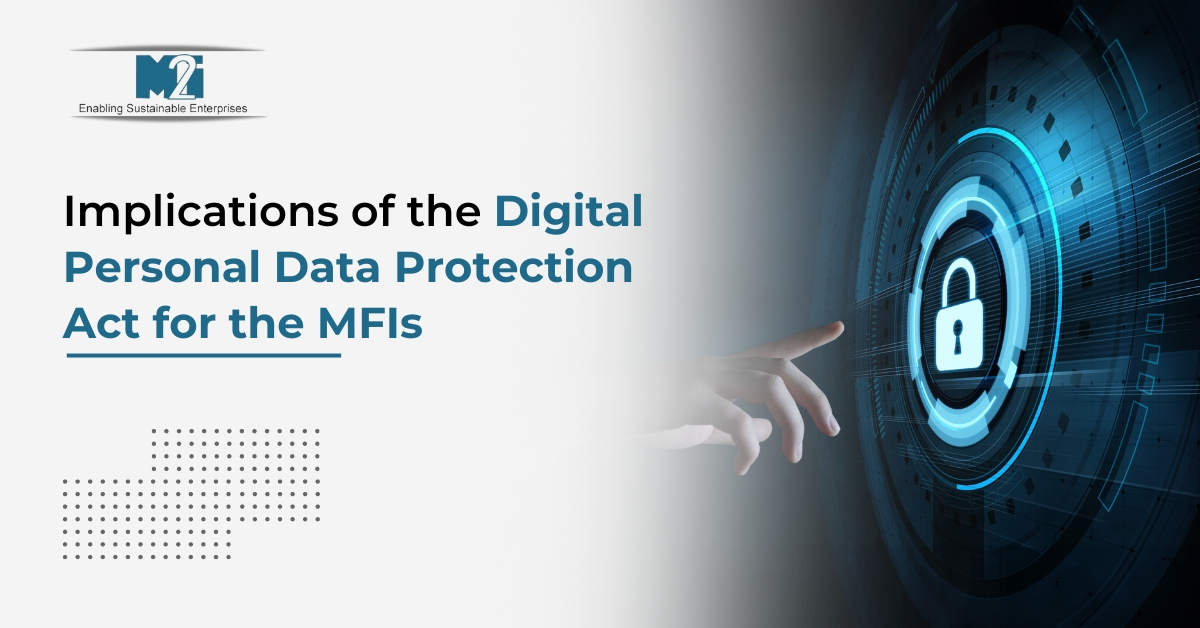
Implications of the Digital Personal Data Protection Act for the MFIs
The enactment of India's Digital Personal Data Protection Act has significant implications for microfinance institutions (MFIs) that handle a plethora of client data. Compliance is not just a legal mandate but also a strategic imperative to maintain trust and reputation.
Consent and Client Education: The fulcrum of adapting to the new Act lies in obtaining explicit consent. MFIs must revise their data collection practices to ensure clients clearly understand the terms of consent. This involves educating clients about how their data will be used, stored, and protected. Client-facing staff must be adept at explaining these aspects in layman's terms, often translating complex data protection concepts into the local vernacular.
Governance and accountability: Governance structures must be fortified. This involves delineating clear accountability lines and establishing rigorous data governance protocols. The appointment of dedicated data protection officers and the implementation of regular compliance audits will be crucial in fostering a culture of accountability and ongoing adherence to the Act. . In the event of data breaches, MFIs must have processes in place to promptly notify the authorities and affected individuals. The ability to demonstrate compliance will not only mitigate legal risks but also solidify the institution's credibility.
Capacity Building: Staff members at all levels must be trained on the principles of the Act, especially regarding data minimization and accuracy. Capacity building should focus on the ethical handling of data and recognizing the importance of privacy.
Technology Imperatives: Technological upgrades are essential to comply with the Act's requirements for data security and breach notification. MFIs must invest in secure data storage solutions and cybersecurity measures to protect against unauthorized access. The use of encryption and other data protection tools should be standard practice.
Cost Implications: Compliance comes with cost implications. MFIs must budget for the technology upgrades, training programs, and potential legal consultations required. While this may impact short-term financials, the long-term benefits of compliance outweigh the initial expenditure.
While the Digital Personal Data Protection Act presents challenges, it also offers MFIs an opportunity to strengthen their operations and build deeper trust with clients. Compliance should be seen not as a burden but as a competitive advantage in the microfinance sector. As MFIs embark on this journey, the focus should be on creating a culture of privacy and protection that resonates with both staff and clients alike.